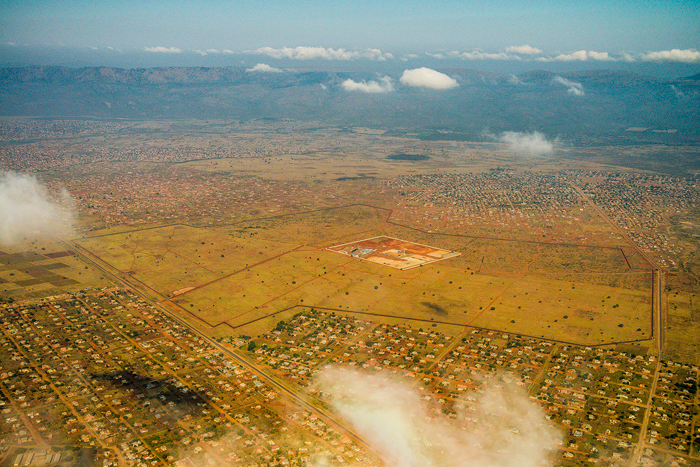Mining for sustainable development
24 October 2016 | Story Newsroom. Photo Ivanhoe Mines.
The African Development Bank (AfDB), headquartered in Abidjan, has made a R4.2 million grant from its Middle Income Country Technical Assistant fund to the South African government. The grant is intended for a UCT-led operation to develop skills and knowledge on the tricky questions of mining and sustainable development.
The aim is to help turn the minerals extraction and beneficiation industries into a force for sustainable development in the country, and ultimately on the continent.
South Africa's minerals industry has a critical role to play in the sustainable or unsustainable development of the country. Historically, this industry colluded with the Apartheid state, exploited workers and impacted negatively on environments on which communities depended for their livelihoods. Today, the sector is regulated under modern mining and environmental laws. But industry, government and impacted communities need management and leaders with new skills sets to operate within these laws, and to turn potential wealth into a positive force for development.
This is where UCT's interdisciplinary MPhil programme specialising in sustainable mineral resource development, running since 2014, comes into play. The AfDB grant makes use of the infrastructure established by the programme, with three distinct goals: 1) enabling more candidates to attend the programme's short courses; 2) funding internships to support capacity-building through the acquisition of field and practical knowledge; and 3) generating knowledge, though research, on the interpretation of the sustainable development goals in the minerals industry.
While this grant focuses on South Africa, it also signals the bank's intention to take skills and knowledge for sustainable development on the continent more seriously. It is doing so by engaging with the Education for Sustainable Development in Africa (ESDA) consortium, a network of eight African universities and the United Nations University in Tokyo, of which UCT is a founding member. This grant thus also enables UCT to live up to its strategic goal of being an academic meeting point of African and international knowledge networks.
The operation was formally launched by means of a video conference on Friday, 14 October 2016, hosted and facilitated by Mr Etienne Porgo, manager of the bank's education team, Abidjan, and attended by AfDB staff in the Pretoria office. Ms Nandi Mkunqwana represented the National Treasury as well as the UCT team.
The programme convenors, Professor Harro von Blottnitz and Dr Jennifer Broadhurst, based in the Chemical Engineering Department, may be contacted for more information.
 This work is licensed under a Creative Commons Attribution-NoDerivatives 4.0 International License.
This work is licensed under a Creative Commons Attribution-NoDerivatives 4.0 International License.
Please view the republishing articles page for more information.










